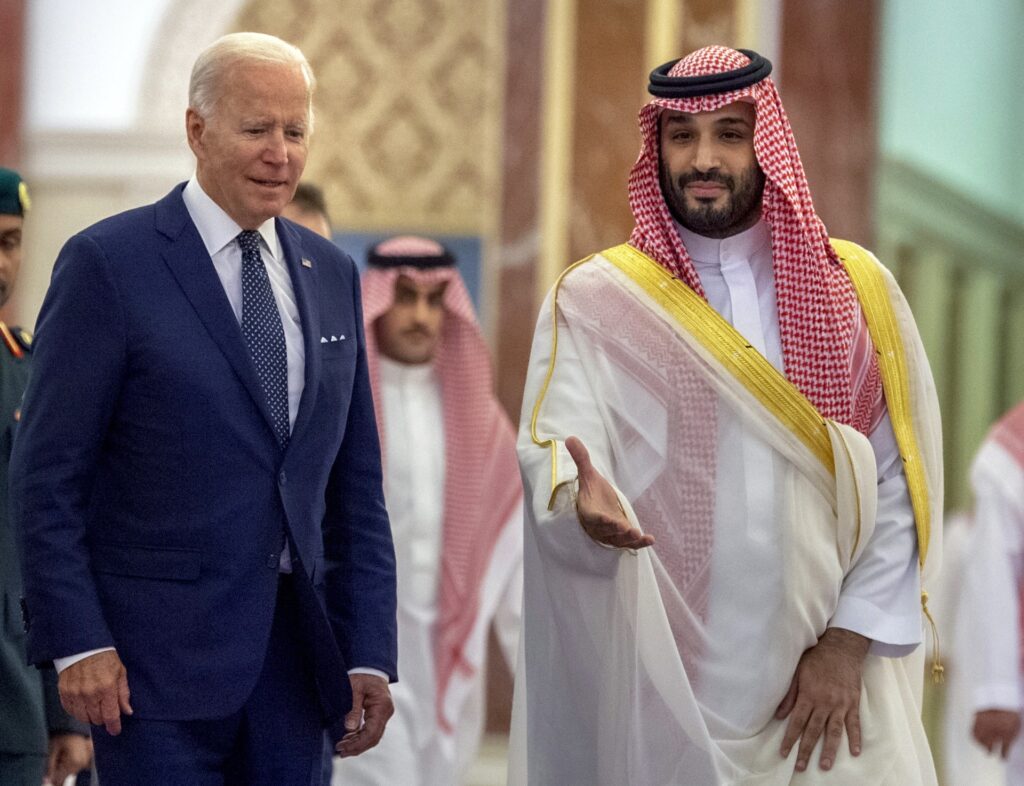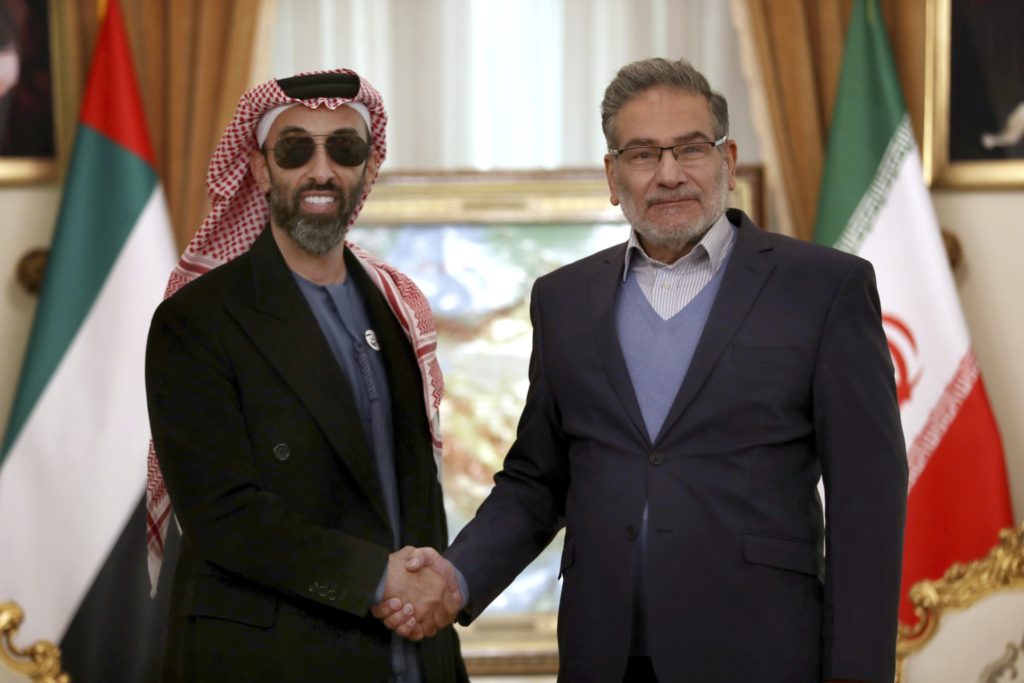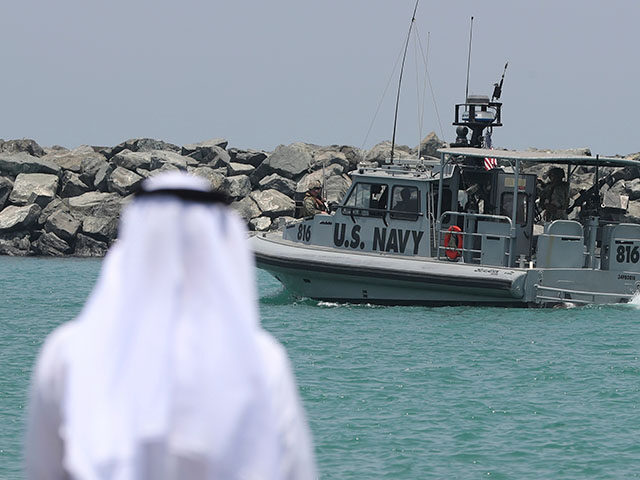The United Arab Emirates (UAE) on Wednesday announced that it quietly withdrew from a U.S.-led security coalition called the Combined Maritime Forces (CMF) two months ago.
The government claimed the reason behind the departure was an “ongoing evaluation of effective security cooperation with all partners,” but some speculated the move was a sign of a growing rift between Gulf Arab states and America after President Joe Biden drove Saudi Arabia into the arms of China and Iran.
This UAE move is further proof that the Biden administration faces a stark and urgent choice. It can back the Gulf States and Israel against Iran or lose the Middle East and the world economy to China-Russia-Iran.https://t.co/1SFGZKbQ3N
— Caroline Glick (@CarolineGlick) May 31, 2023
Iran International noted on Wednesday that the withdrawal time frame provided by the UAE “roughly corresponds with Saudi Arabia’s decision in early March to restore diplomatic relations with Iran, which has been much discussed as a shift in Riyadh’s regional policies.”
The rapprochement between Saudi Arabia and Iran announced in March was brokered by China, which touted the achievement as proof that China has surpassed the United States as a diplomatic power.
Saudi Arabia and Iran agreed to resume diplomatic ties after a negotiations in Beijing. The efforts made by the two countries and China in seeking peaceful settlements of disputes amid global growing uncertainties are praised.https://t.co/9BWw6Mk7H3 pic.twitter.com/QcosvIPnlN
— Chinese Embassy in Grenada (@ChinaEmbGrenada) March 10, 2023
It was also the next step in a Saudi realignment away from the U.S. that began when Biden vowed during his 2020 campaign to make the Saudis into a “pariah” among nations. Biden wound up begging the Saudis for oil after his approval ratings plummeted in office, but Riyadh evidently did not forget the insult.
The CMF is headquartered in Bahrain, along with the U.S. Navy’s Fifth Fleet. It is commanded by the same U.S. Navy Vice Admiral who oversees the Fifth Fleet and U.S. Naval Forces Central Command (NAVCENT). The deputy commander is a commodore in the U.K. Royal Navy.

In this photo released by the Saudi Royal Palace, Saudi Crown Prince Mohammed bin Salman, right, welcomes U.S. President Joe Biden to Al-Salam Palace in Jeddah, Saudi Arabia, July 15, 2022. (Bandar Aljaloud/Saudi Royal Palace via AP)
Before the UAE withdrew, CMF had 34 members, who volunteered to help with “countering illicit non-state actors on the high seas and promoting security, stability, and prosperity across approximately 3.2 million square miles of international waters.”
Those waters include some of the most vital shipping lanes in the world, so the CMF focuses on activities such as “counter-narcotics” and “suppressing piracy.”
Iranian threats to shipping in the Persian Gulf have been in the news of late, including two tankers seized by Iranian Islamic Revolutionary Guard Corps (IRGC) forces near the Strait of Hormuz in late April and early May. One of those tankers was bound for a port in the UAE when it was captured.
The taking of the oil tanker Niovi renewed concerns about Iran threatening maritime traffic in the strait, the narrow mouth of the Persian Gulf through which a fifth of all crude passes. https://t.co/E533SkUkkR
— Mike Demarest (@Mike_Demarest) May 3, 2023
Iran International suggested the UAE and other regional powers have been uneasy ever since the Trump administration backed down from military retaliation against Iran for using its Yemeni proxies to bomb Saudi oil facilities in 2019.
The UAE was reportedly even more frustrated by the Biden administration’s passivity in the face of escalating Iranian assaults on Gulf shipping. Iran International suggested the Emiratis might have concluded the U.S. will not protect them, so seeking “diplomatic engagement” with Iran is the best way to secure UAE shipping lanes.

Secretary of Iran’s Supreme National Security Council Ali Shamkhani, right, and United Arab Emirates’ top national security adviser Sheikh Tahnoon bin Zayed Al Nahyan shake hands for the media prior to their meeting in Tehran, Iran, Monday, Dec. 6, 2021. (AP Photo/Vahid Salemi)
Whatever its reasons might be, the UAE’s withdrawal from the CMF comes at an awkward moment, as the coalition announced the creation of a new task force for training partner navies just last week.
The National reported that “an increase in Iranian threats in the region” played a “major role” in the establishment of Combined Task Force (CTF) 154.
US-led maritime training task force established in Middle East https://t.co/QdqnTNWau6
— The National (@TheNationalNews) May 23, 2023
“Establishing CTF 154 demonstrates our deep commitment to strengthening and expanding partnerships through new training opportunities that will enhance regional maritime security,” said Vice Admiral Brad Cooper, current commander of the U.S. Fifth Fleet and CMF.
CMF announced that naval personnel from Bahrain, Kuwait, Oman, Pakistan, and Saudi Arabia were joining the U.K. and U.S. for training. The UAE was not mentioned.
The White House said on May 12 that it plans to undertake “a series of actions to strengthen defensive posture in the Persian Gulf, specifically in response to Iran seizing tankers, but this apparently did not persuade the UAE to reconsider pulling out of the CMF.

COMMENTS
Please let us know if you're having issues with commenting.